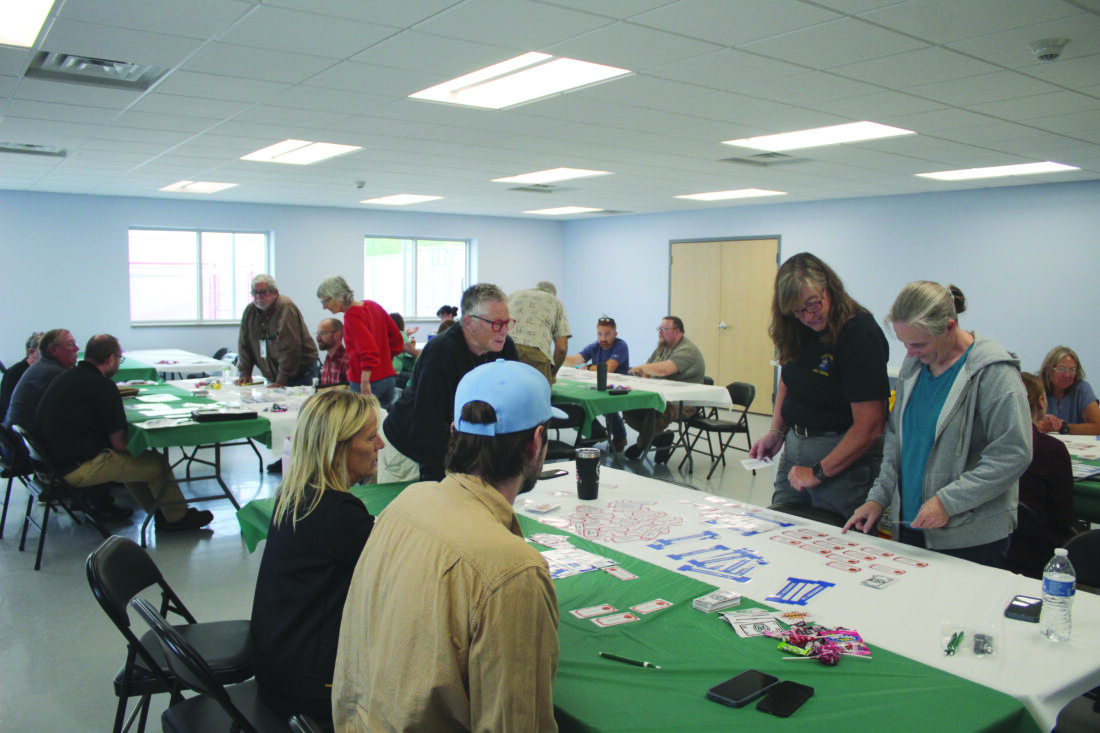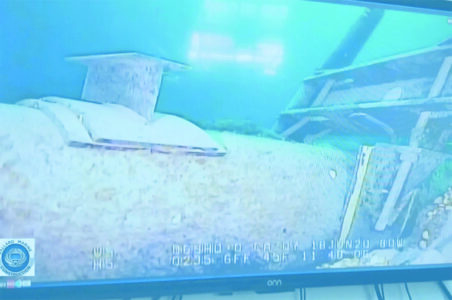Disaster preparedness planning for pets helps responders train for emergencies involving animals

Law enforcement, animal control and others gather at the Upper Peninsula Animal Welfare Shelter on Wednesday to network and learn about responses to animal emergencies and how to respond to them. (Journal photo by Antonio Anderson)
SANDS TOWNSHIP – Emergency personnel, animal control, members of the Red Cross and many more attended the first large animal rescue course on Wednesday at the Upper Peninsula Animal Welfare Shelter. This event was to help responders to network with one another as well as go through training to help animals in case of emergencies. Also attending were numerous members of Michigan State Extension, who provided a speaker as well as training on how to use the Emergency Response for Accidents Involving Livestock trailer given to Forsyth Township Fire Department this spring.
“There needs to be a lot of work done with the state, and that is what we are trying to start,” said event organizer Cathy Ruprecht. “At some point, my goal is to have the state or the county start an animal response team locally.”
The training is also set to coincide with the PETS Act, signed into law in 2006. The PETS Act, as explained by the American Veterinary Association, amends the Robert T. Stafford Disaster Relief and Emergency Assistance Act to ensure that State and local emergency preparedness operational plans address the needs of individuals with household pets and service animals following a major disaster or emergency. The PETS Act authorizes the Federal Emergency Management Agency to provide rescue, care, shelter and essential needs for individuals with household pets and service animals, and to the household pets and animals themselves following a major disaster or emergency.
“So this has been a requirement from the law, from the Pets Act,” said Ruprecht. “In a disaster, local communities need to ensure pets are taken care of and provided for. So my mission and that of Michigan State is to bring awareness to the State of Michigan.”
Ruprecht and those assisting her have big goals to help limit tragedy should one strike.
“Imagine this, more than 80% of households have pets, not only one but multiple,” said Ruprecht. “Imagine if we were to evacuate an area and were told to go to this school and bring your pets. What would that even look like? We need teams of trained volunteers so that when the Red Cross comes to set up an evacuation shelter, somebody comes to care for the pets,” said Ruprecht.
Ruprecht was assisted in this training effort by Michigan State Extension’s District 2 Director, Erin Daines, who helped bring in experts to the event who gave instruction and education on issues. As well as providing the ERAIL trailer this past spring, which greatly adds to the shared mission of Ruprecht and Daines.
“The trailer is equipped with everything that they will need for all the training,” said Daines. “It was a kind of pricey, but we got it with a grant. Hopefully, we can get two more in the U.P. because with this one being central, we really need one in the east and west end as well.”
The trailer was paid for with a five-year grant from the Michigan Department of Agriculture and Rural Development. Michigan Extension has eight ERAIL trailers but this is the first to be in the U.P., and Daines hopes they can get at least two more as it is better to be prepared for an accident than to try and figure it out in the moment.
“You see those cattle being driven on the road and you wonder how you can help them if something were to happen,” said Daines.
“It’s a lot of work for something you’d hope will never happen,” said Ruprecht.
Antonio Anderson can be reached at 906-228-2500, ext. 550. His email address is aanderson@miningjournal.net.




